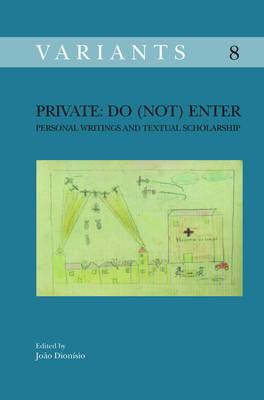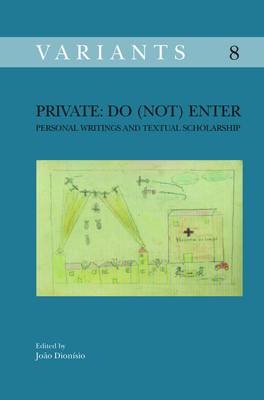
- Afhalen na 1 uur in een winkel met voorraad
- Gratis thuislevering in België vanaf € 30
- Ruim aanbod met 7 miljoen producten
- Afhalen na 1 uur in een winkel met voorraad
- Gratis thuislevering in België vanaf € 30
- Ruim aanbod met 7 miljoen producten
Zoeken
Omschrijving
Until recently, writings of a private nature have been neglected in literary and textual studies. There are two main reasons for this: the scarcity of pre-modern witnesses of this type of textual production and, in contrast, the over-abundance of material in contemporary writers' archives. Although in more recent times there has been a marked shift towards the study of private and personal writings, important issues remain to be studied. In the light of genetic criticism and in the context of the broadening attention of textual scholarship to all matters relating to textual production, these texts have acquired a new status, but the legal, philological and historical questions they raise have not been systematically addressed.
The new interest of textual scholarship in the processes of creation and dissemination of texts offers an opportunity to reflect more thoroughly on the nature of these documents: on the role they play as witnesses to specific literary or para-literary genres (e.g. letters, diaries), on their significance in circumstances of political repression, and as part of the textual genetic process. This collection of essays includes articles that deal, through heterogeneous approaches, with different aspects of Dutch, English, French, Lithuanian, Portuguese and Spanish written cultures.
The new interest of textual scholarship in the processes of creation and dissemination of texts offers an opportunity to reflect more thoroughly on the nature of these documents: on the role they play as witnesses to specific literary or para-literary genres (e.g. letters, diaries), on their significance in circumstances of political repression, and as part of the textual genetic process. This collection of essays includes articles that deal, through heterogeneous approaches, with different aspects of Dutch, English, French, Lithuanian, Portuguese and Spanish written cultures.
Alleen bij Standaard Boekhandel
+ 242 punten op je klantenkaart van Standaard Boekhandel
Beoordelingen
We publiceren alleen reviews die voldoen aan de voorwaarden voor reviews. Bekijk onze voorwaarden voor reviews.








